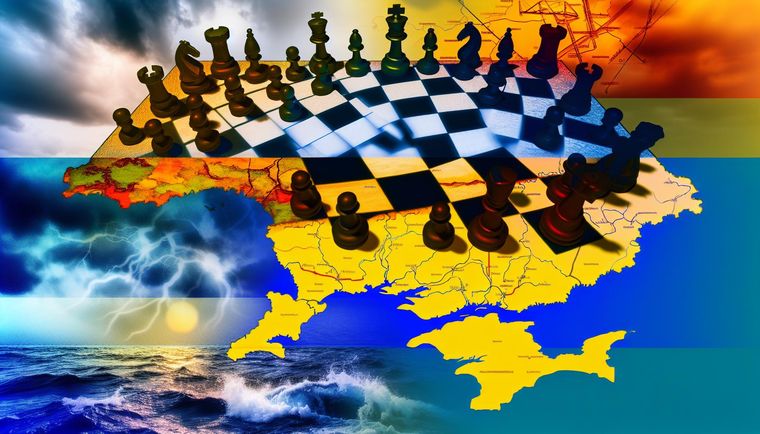Escalating Hostilities in Ukraine: Key Developments and Perspectives

As the conflict in Ukraine intensifies, several significant updates have emerged from the frontlines and political spheres. The Ukrainian parliament has recently voted to ban the Orthodox Church affiliated with Russia, citing its perceived role as a support mechanism for Russian influence and invasion efforts. This ban garnered notable support, with 265 deputies in favor and only 29 against. The legislation will take effect in 30 days, and religious organizations are given nine months to sever ties with the Moscow Patriarchate.
Meanwhile, Ukrainian President Volodymyr Zelensky addresses the nation regarding the ongoing airstrikes and military advances. Reports indicate that Russian forces continued to bombard Ukraine through night airstrikes, impacting nine regions, including Kyiv. The Ukrainian Air Force successfully intercepted multiple missiles and drones, although some were able to penetrate air defenses. Zelensky emphasized that claims of Russian retaliation being a 'red line' have proven empty, especially as Ukrainian troops have successfully captured over 1250 square kilometers of territory in the Kursk region, including 92 villages.
During his appearance before diplomats, Zelensky noted that collaborations with international partners need to reflect the current dynamics on the ground. As military advances shift, he advocates for expediting the delivery of military aid from Western allies, aiming to ensure that Russia does not capitalize on any ceasefire as a chance to regroup. With ongoing fighting around the strategically important city of Pokrovsk, both Ukrainian and Russian forces remain engaged in fierce territory battles.
Chancellor Olaf Scholz of Germany has reaffirmed his country's commitment to supporting Ukraine with military aid, dismissing calls to halt arms deliveries. Scholz warned that withdrawing support might result in Ukraine being overrun by Russian forces. This stance reflects a broader sentiment within Germany's government that while debates over future aid strategies continue, the priority remains clear—to support Ukraine's defense efforts unequivocally.
On the diplomatic front, Indian Prime Minister Narendra Modi is set to visit Kyiv for bilateral discussions with Zelensky, further underscoring India's complex position in the ongoing conflict. Modi’s visit follows his meeting with Russian President Vladimir Putin, highlighting India's balancing act amidst significant international pressures.
In related news, prominent German politician Sahra Wagenknecht is advocating for a return to Russian oil supplies, a stance met with criticism amid accusations of undermining sanctions. This highlights an internal debate regarding economic measures in light of the war's repercussions.
As these developments unfold, the human and humanitarian aspects of the war also remain a key focus, with evacuations continuing in areas under intense siege. Ukrainian officials report attempts to assist civilians in leaving Pokrovsk, the situation remains dire for many as the conflict shows no signs of abating.
With mutual shelling reported on both sides, ongoing military advancements, and the underlying geopolitical ramifications, the situation in Ukraine remains volatile. Observers and analysts continue to monitor the shifting landscape as Ukraine strives to reclaim territory and assert its sovereignty in face of relentless aggression.
Related Sources:
